'Arab Nelson Mandela': George Ibrahim Abdallah's 40-year fight for justice, freedom
By Alireza Akbari
After four decades in French prisons, the release of a Lebanese activist, often referred to as the ‘Arab Nelson Mandela,’ was ordered by a French court on Friday, marking a significant milestone in a long battle against political interference that has delayed his freedom.
The French court's announcement of Georges Ibrahim Abdallah's conditional release has sparked jubilation among activists and human rights organizations in Lebanon and across the region, who are looking forward to the liberation of the longest-serving prisoner in Europe.
Abdallah's lawyer, Jean-Louis Chalanset, described the ruling as a “legal and a political victory.”
His imprisonment has far exceeded that of the iconic South African anti-apartheid leader Nelson Mandela, who spent 27 years behind bars for his fight against apartheid in South Africa.
Detained in 1984, Abdallah was sentenced to life in prison in 1987 in Lannemezan, France, falsely accused of a role in the 1982 killings of US military attaché Charles Ray and Israeli regime figure Yakov Barsimentov in Paris.
While the Lebanese Armed Revolutionary Factions (LARF) claimed responsibility for the killings, framing them as reprisals for American and Israeli involvement and crimes during the Lebanese Civil War (1975-1990), Abdallah was sentenced to life imprisonment.
During the trials, Abdallah consistently denied any involvement in the killings. He, however, defended his pro-Palestine advocacy and said his motivation stems from an unwavering commitment to “opposition to injustices,” particularly concerning Palestinian rights.
“I do what I do because of the injustice done to human rights where Palestine is concerned," he said.
During his lengthy incarceration, Abdallah received steadfast support from a coalition of human rights organizations, including the French League for the Defence of Human and Citizen Rights, the Association France-Palestine Solidarité, and the French Jewish Union for Peace among others.
During French President Emmanuel Macron's visit to Lebanon on August 6, 2020, several social media campaigns emerged under the hashtag #MacronLibérezAbdallah, meaning "Macron free Abdallah."
These campaigns aimed to raise awareness and advocate for the release of the Lebanese activist.
Following the announcement of the court's decision regarding Abdallah's release, his brother Robert Abdallah expressed cautious optimism while speaking to the media.
“We have experienced disappointment in the past, as unfortunately, France has succumbed to American and Israeli intervention,” he was quoted as saying. “However, we hope that this time the French judiciary will regain some of its independence.”
Abdallah's support committee has described his situation as “a victim of judicial harassment under foreign pressure,” highlighting the challenges he has faced within the judicial system.
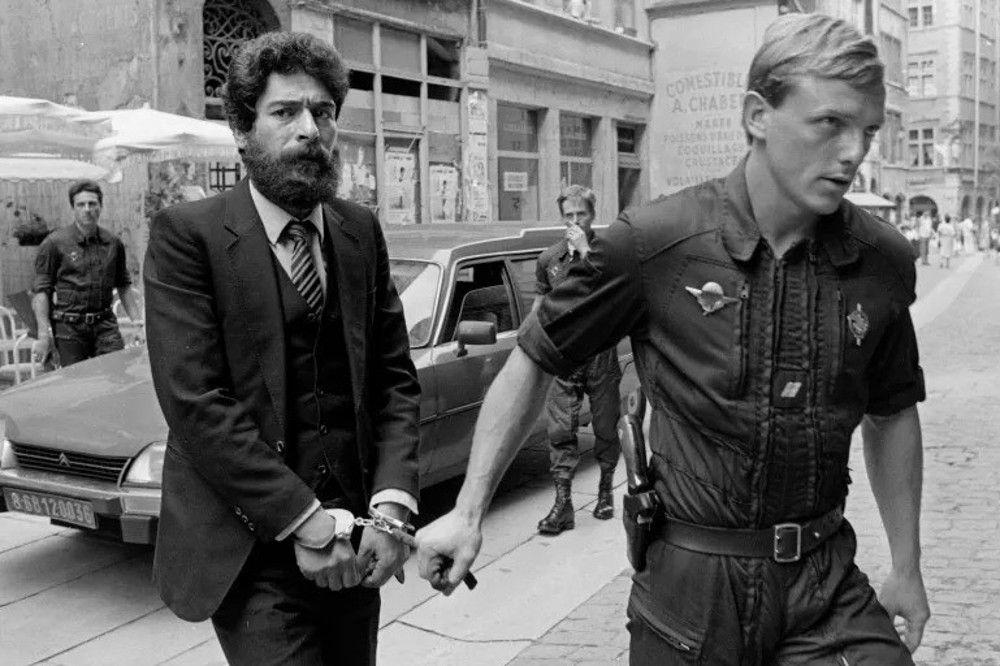
Who is George Ibrahim Abdallah
Born in 1951 into a Christian Maronite family in the village of Qoubaya in northern Lebanon, Abdallah began his political journey in the 1970s as a pro-Palestinian supporter.
After being appointed a secondary school teacher, he was transferred to Beirut, where his political sympathies deepened and an activist in him took birth.
During the Israeli invasion of Lebanon in 1978, Abdallah joined the Palestinian resistance and was wounded. After that, he became involved with the Popular Front for the Liberation of Palestine (PFLP) and later aligned himself with a group known as the Lebanese Revolutionary Armed Factions (LRAF).
Later, the LARF claimed responsibility for several attacks against American and Israeli regime officials in France during the 1980s. Among these was the assassination of Lieutenant Colonel Ray and Second Counsellor at the Israeli Embassy, Barsimantov, in Paris in 1982.
While residing in Switzerland, Abdallah traveled to France to secure a deposit for a rented apartment where he was arrested by French authorities in Lyon in October 1984.
Subsequently, French police raided an apartment rented by one of Abdallah’s friends, alleging it was being used as a hideout by the LARF.
During the raid, they claimed to have discovered a weapon used in the killings of Ray and Barsimantov, leading to charges against Abdallah for his alleged involvement in them.
In 1986, Abdallah was convicted of "criminal association, possession of arms, and forgery," resulting in a four-year prison sentence.
During the trial that began on February 23, 1987, Abdallah could not be directly linked to any of the violent attacks in France. Nevertheless, he was convicted for his alleged involvement in the assassinations of Ray and Barsimantov, receiving a life sentence.
“If the people have not entrusted me with the honor of participating in these anti-imperialist actions that you attribute to me, at least I have the honor of being accused of them by your court and of defending their legitimacy in the face of the criminal legitimacy of their executioners,” Abdallah told the court.
“I am a fighter, not a criminal. The path I have followed has been imposed on me by the human rights abuses perpetrated against Palestinians.”
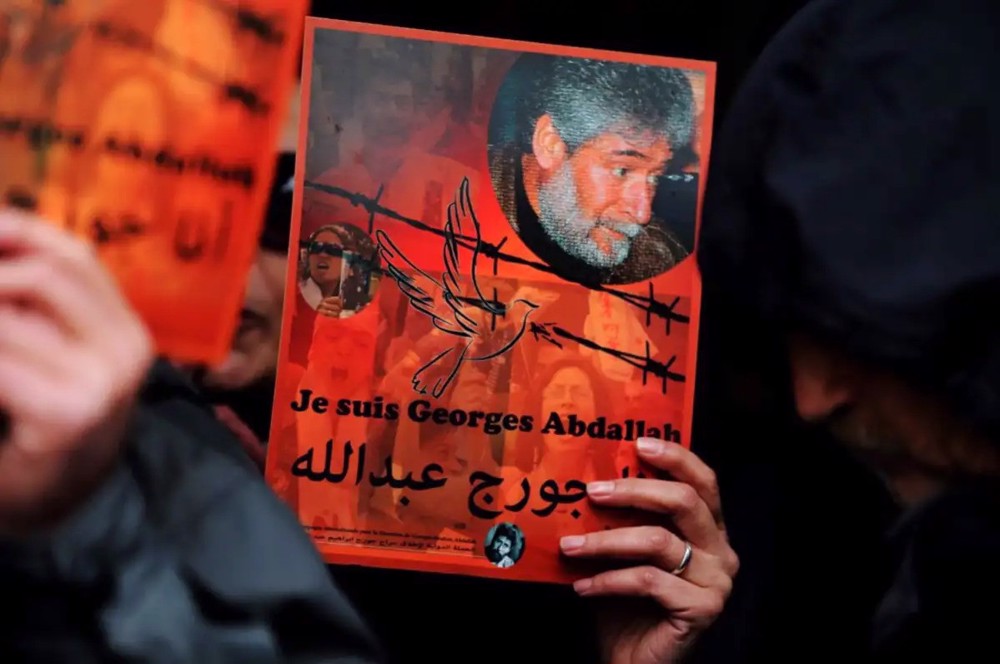
Human rights campaigners say the evidence used to convict Abdallah was “fabricated retroactively by French, American, and Israeli intelligence services.”
Compounding these concerns, years after the trial, French lawyer Jean-Paul Mazurier admitted that he had acted as a “spy” for French intelligence while representing Abdallah.
Tom Martin, a member of the Palestinian Prisoners’ Solidarity Network, Samidoun also said, “What he is accused of today are purely his political convictions.”
Despite facing significant pressure from French, Israeli, and American authorities during his court proceedings, Abdallah has steadfastly refused to surrender.
His supporters view him as a “symbol of resistance and resilience,” his supporters have noted.
Although he completed the minimum portion of his life sentence in 1999 and has been eligible for parole ever since, all of his requests were denied.
Between 2004 and 2020, various parole applications were rejected, including in 2003, 2012, and 2014.
In February 2012, Lebanese Prime Minister Najib Mikati visited Paris, urging French authorities to release Abdallah, whom he described as a “political prisoner.”
Despite a court ruling in 2013 that granted Abdallah release on the condition of deportation from France, then-Interior Minister Manuel Valls refused to implement the order which highlighted the political motivations underpinning Abdallah’s continued imprisonment.
According to a non-profit media organization and publisher of leaked documents, WikiLeaks, Valls’s decision followed a phone call from then-US Secretary of State Hillary Clinton to French Foreign Minister Laurent Fabius, in which she urged him “not to release Abdallah.”
Subsequently, Valls declined to sign the deportation order.
“Although the French Government has no legal authority to overturn the Court of Appeal’s January 10 decision, we hope French officials might find another basis to challenge the decision’s legality,” Clinton told Valls at the time.
Press TV’s website can also be accessed at the following alternate addresses:
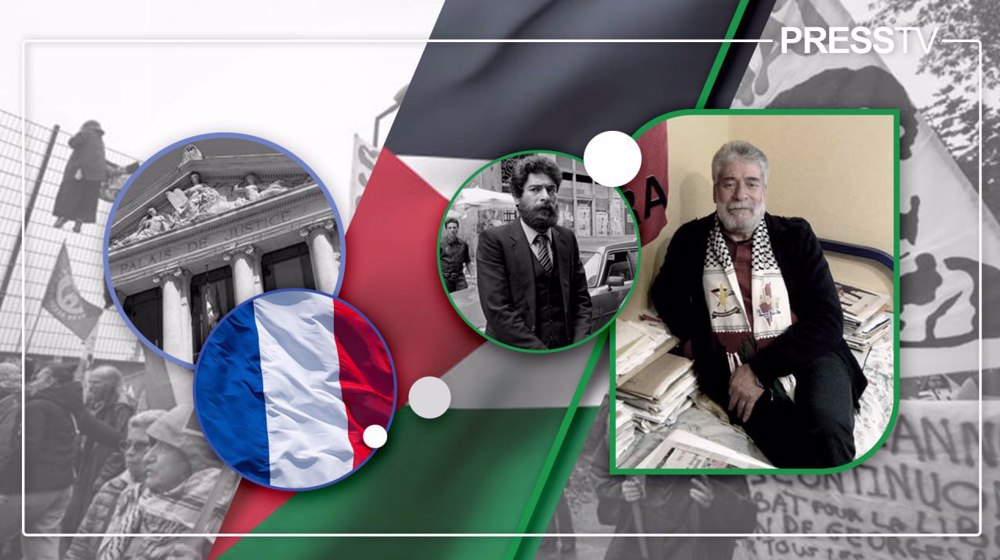
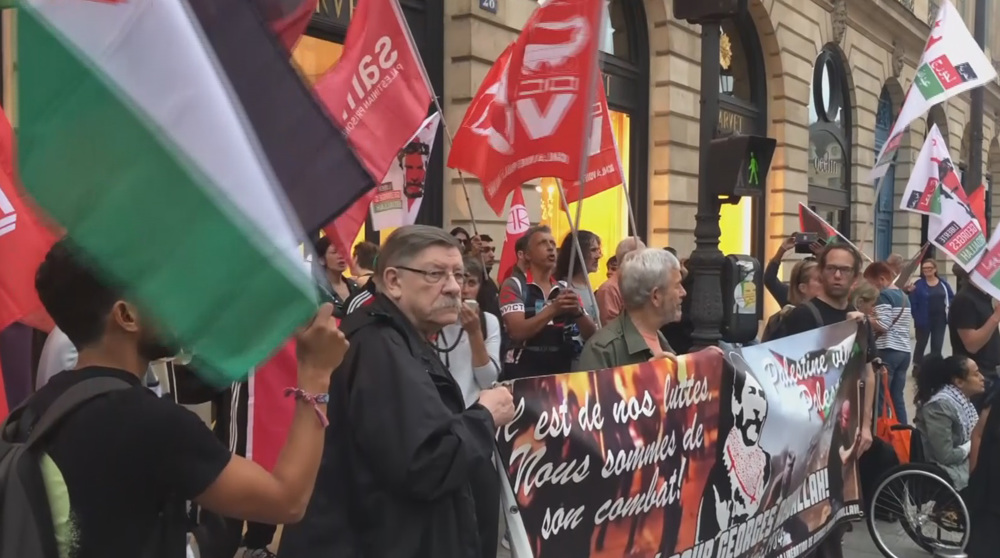
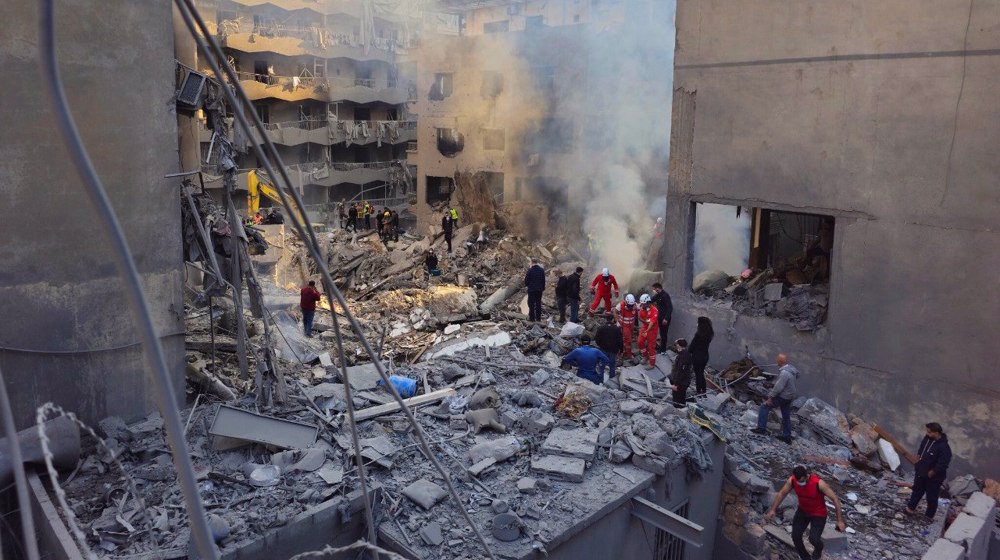

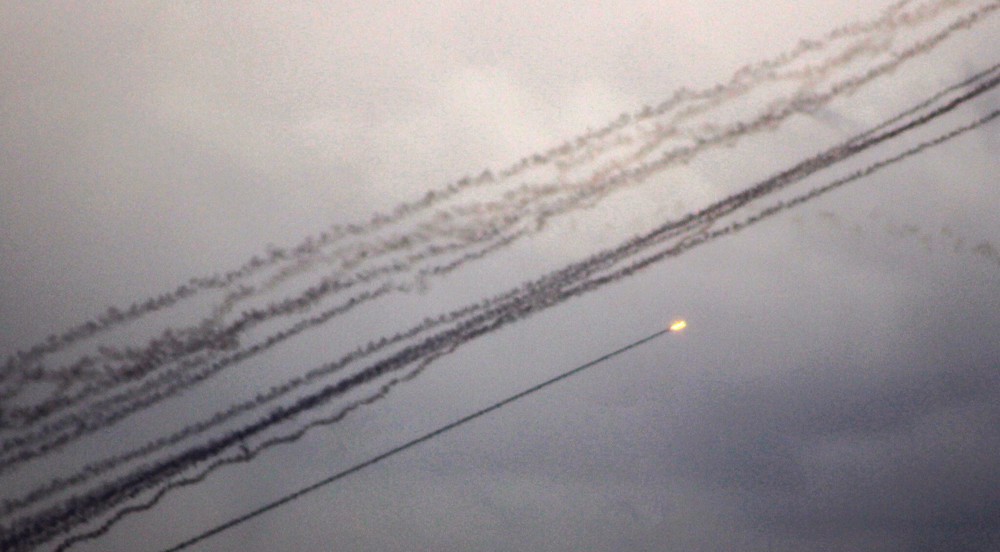



 This makes it easy to access the Press TV website
This makes it easy to access the Press TV website